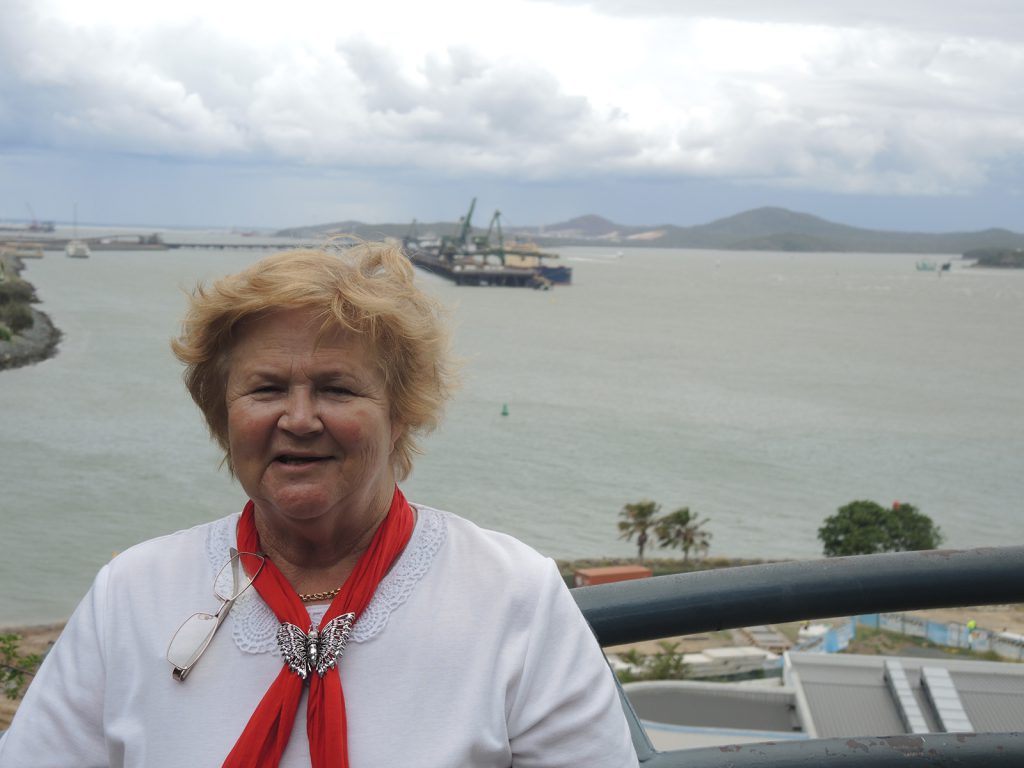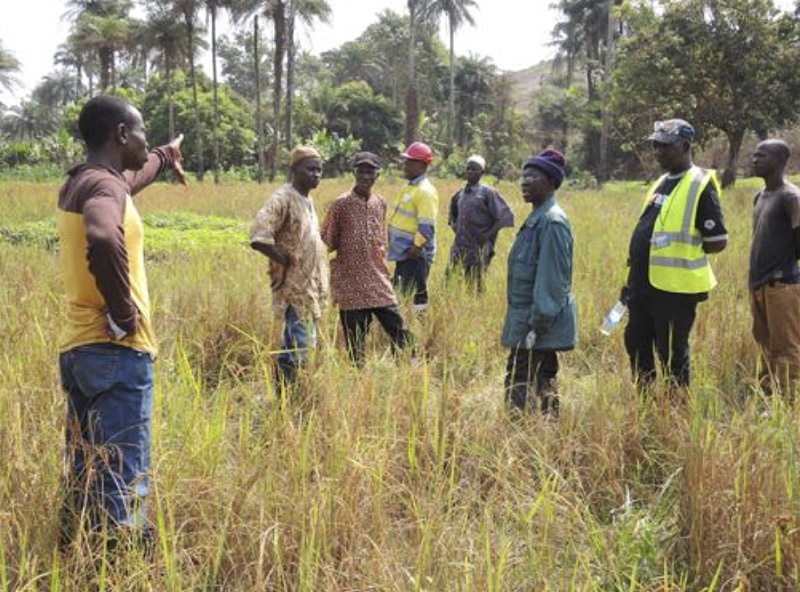How Globalization Has Broken the Chain of Responsibility

In Gladstone, a small city in Queensland, Australia, even the sunset is shaped by the global resource industry. Looking west in the late afternoon, you cannot help but notice the three tall chimneys of the power plant in front of the yellow disk sinking below the horizon. It is a vibrant industrial city, with one of the world’s largest coal ports, two sizable alumina refineries, a smelter turning the alumina into aluminum, three liquid natural gas plants, a cement factory, and a cyanide factory. It is prosperous, thriving, and energetic—but at a price.
Gladstone is a child of globalization. Since the 1960s, the growth of its export-oriented, resource-based industry has increased exponentially along with the population of this once rural town. The rapid changes the city has experienced have turned it into the undisputed industrial hub of Central Queensland. But globalization has also given rise, for many in Gladstone, to vulnerability and powerlessness.
A small environmental group, Gladstone Conservation Council, takes this vulnerability as its point of departure. It accuses local industry of not being sufficiently concerned with the ecological effects of rapid change. In the past, one activist told me, locals could deal constructively with the management of industries like the small limestone mine, which pumps millions of liters of water a year in a state where water is scarce. About a decade ago, the director was a local man who they knew and who they could hold accountable—for example, activists used their local power to secure compensation for farmers who had suffered a depletion of their water resources. Today, following a merger, the local manager is just an employee of one of the world’s largest cement corporations. After listening to farmers’ complaints, he can only direct them to the main office, which is located elsewhere in Australia. The local activists now have fewer cards in their hands.
When they do take their concerns to various corporate headquarters, activists typically get responses like: We are grateful for your submission and comments, and will take them into consideration. As one activist says, “This means, of course, that they will just do what they had planned to do anyway.”
Gladstone is hardly a unique case. The people who live there, like other citizens around the world, are suffering the symptoms of a much larger problem. As the world grows ever faster and bigger, with ever more connections, locals are left further and further outside of the circles where sources of power lie, and those in power are increasingly divorced from the people and places they influence. The scalar gaps between decision-makers and those who are affected by their decisions are growing, and a democratic deficit results.
If you drive a car too fast, the engine will eventually grind to a halt, spewing out black smoke in copious quantities. This rarely happens because the driver of the car, sitting in the driver’s seat and intimately connected to the car and its fate, sees the warning signs and adjusts his or her driving style. Today, as my 2016 book illustrates, our global “car” is indeed overheating: It is speeding, nobody has a full overview of the traffic, which is growing denser by the minute, and the vehicle is fast running out of oil. And responsibility is so diffuse that no single person or organization has the authority to say Enough is enough! Let’s slow down a bit.
This is a very dangerous situation.
Global population and the world’s interconnections are increasing at an unprecedented rate; internet access, tourism, migration, and increased trade, among other phenomena, are transforming the planet. While the world gross domestic product has grown by 250 percent since 1980, world trade has grown by 600 percent; the ports of Shanghai and Singapore alone more than doubled their turnover of goods between 2003 and 2014. Cities like Mogadishu, Somalia, have seen growth rates of 1,000 percent in a generation, expanding from a couple hundred thousand inhabitants in the 1980s to a couple of million. The faster the rate of change, the harder it is for people to adapt.
Our anthropology research team, based at Norway’s University of Oslo, has been working since 2013 on the study of local worlds like Gladstone—in an effort to explain what kinds of lives people in local communities lead and how they respond to this accelerated change. The team, consisting of four postdocs, two Ph.D. fellows, a dozen M.A. students, two senior researchers, and myself as principal investigator, has studied work and leisure in the tar sand fields of Canada, mining in Sierra Leone, water issues in Peru, xenophobic nationalism in the U.K., Hungary, and Norway, labor in the Philippines, energy in Nepal, and much more.
There are alternatives to the current situation of powerlessness.
Needless to say, there is a great deal of diversity in both the kinds of change being experienced in these places and the local reactions. To some, change offers job opportunities, peace, and improved infrastructure; to others, it means pollution, eviction, and a loss of livelihood. What all residents have in common is a loss of political autonomy. The decisions shaping their lives are being made further and further away from the specific locales where they live.
One example from our research is a town in the Peruvian Andes where water was becoming scarce a few years ago. The locals suspected that a new mine was using their water, and they went to complain. However, the mining representatives claimed that it was not their fault and blamed global climate change for the erratic water supply. The question of who to blame and what to do suddenly became insurmountable for the townspeople. What could they do—send a worried email to then U.S. President Barack Obama and the Chinese government, urging them to curb greenhouse gas emissions? The gap was, naturally, too dizzying. Instead, some of them resorted to traditional healing rituals to placate the spirits regulating rain and meltwater. They trusted Pachamama, the goddess of Earth, more than their government or distant international organizations.
Meanwhile in Lunsar, Sierra Leone, people were looking forward to job opportunities in a new mine (which, in any event, never opened) and a biofuel plantation (which did open). Globalization had brought them many benefits, notably an improved infrastructure. They relished the fact that, for the first time, they could buy bread from a roadside vendor that wasn’t covered in dust, since the road had finally been paved. But even in the midst of some positive outcomes, rapid change is creating discontent and frictions, not least over property rights. In traditional African societies, land was not considered property and could not be traded: It was allocated by the chief, used as a common resource available to all, or cultivated according to customary law. More recently, land has been privatized and turned into a form of capital, and suddenly, boundaries need to be drawn in an unequivocal way. Needless to say, these boundaries are contested.
In the frenzied, overheated years since the early 1990s, people almost everywhere have become largely dependent on global circumstances for their prospects and quality of life. If, while on vacation in Indonesia, you wonder why there is so much plastic on Bali’s beaches, the explanation is that it has drifted over from the neighboring island of Java. The chain of blame has lengthened, and the good has mixed in with the bad. Plastic waste, apart from being a mounting environmental problem, is also a sign that the country is doing well by conventional standards.
In the mid-1800s, when Karl Marx and Friedrich Engels wrote The Communist Manifesto, capitalists were easily identifiable. They were typically men, and the property owner was the proverbial man in the top hat, with his waistcoat, paunch, cigar, and gold watch. Today, the situation is far more complicated since ownership structures are transnational, corporate, and complex. Even in democratic countries, where political leaders are elected, there is a widespread feeling that the “powers that be” are further away and less approachable than before, and that there is nowhere to go with your complaints. In other words, both the economy and politics are less manageable, more difficult to understand, and harder to effectively react to.
There are alternatives to the current situation of powerlessness. One way to counter globalized power is to globalize the response by forging alliances between local community groups and transnational organizations that are capable of putting pressure on governments, public opinion, and corporations. This has been a successful strategy among feminists, trade unionists, and environmentalists in the recent past. Another option—an opposite yet complementary strategy—is to resist the forces that threaten to overrun and disempower local communities. One of the most striking examples of this strategy is the burgeoning support for locally grown food.
Gladstone is unique compared to previously traditional societies in that it is enmeshed in the economic globalization, which makes the little man and woman even smaller than they used to be. The city’s rise to prosperity was indeed a result of globalization. Yet, the same forces may well cause its downfall. Crucially dependent on fossil fuels, the city may once again become a dusty backwater should the world find better energy solutions.
Signs of the city’s vulnerability are already evident: Since coal and gas prices began largely declining in 2013, and then a major construction project ended in 2015, the city has seen an unprecedented rise in unemployment and a steep fall in real estate prices. Thousands of Gladstonites, whose home was their cushion, insurance, and pension fund, woke up to discover that their house was no longer a safe investment. They have yet to work out where to go with their complaints.



























